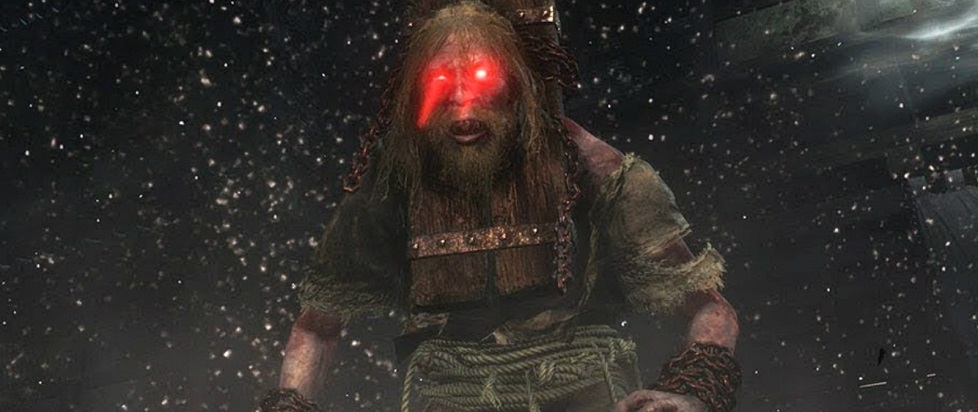
Shadows Blunder Twice
 This column is a reprint from Unwinnable Monthly #115. If you like what you see, grab the magazine for less than ten dollars, or subscribe and get all future magazines for half price.
This column is a reprint from Unwinnable Monthly #115. If you like what you see, grab the magazine for less than ten dollars, or subscribe and get all future magazines for half price.
———
Corey Milne stands at the intersection of gaming and world history to see what he can see.
———
Sekiro: Shadows Die Twice has a few things going for it. It’s the latest action game from the ever popular studio FromSoftware. This ensures that the game’s release was burdened with certain expectations of a ravenous fan base. It meets many of them. The action is slick as anything. The game can be crushingly difficult and sometimes it’s downright unfair, but in an industry that tirelessly works to massage gamer egos, doing well in one of Sekiro’s combat encounters can be unadulterated power trips in skilled hands. The game’s setting which mixes the mystical with the historical makes a nice change from the dreary and dead cities that populate From’s other series. More than anything else I think Sekiro might be one of the funniest games I’ve played in the last few years.
The game has a few obviously comical moments. The one that stands out and garnered the most attention on social media was “Woo Guy.” Relatively early in the game, players will find themselves battling through a pretty tough gauntlet. You must fight across city rooftops in an effort to get to a kidnapped prince. The enemies are an agile band of warriors called Nightjar Ninjas. Clothed in tengu masks and feathered cloaks, they’re weak in single combat, but a group will cause trouble. While defending yourself from these masked men, at a certain point you might hear someone give a whoop of exhilaration and before that has time to register in your brain, a shape rockets into you from off screen and body slams you out of the realm of the living. You’ve just been introduced to Woo Guy and now you’re dead.
FromSoftware loves distracting players with gangs of enemies while hiding another just out of sight. It’s always an unfair death, but we forgive it because it makes us laugh and when you know the threat is there it loses its bite. More than Dark Souls or Bloodborne, Sekiro has absurdity written into its DNA. In the early game, there is a mini-boss the player must defeat to continue. This is before the game opens up and provides other routes to explore, so everyone is likely to come across this enemy. It’s simply named “Ogre.” It’s large and has red eyes, denoting it to be stronger than the average warrior. How does it channel its strength and fury? Wrestling moves. In 16th century Sengoku era Japan, we have to battle a beast man who wants nothing more than to elbow drop you into oblivion. Shadows Die Twice might actually be a perfect game.
[pullquote]More than Dark Souls or Bloodborne, Sekiro has absurdity written into its DNA.[/pullquote]
Compared to the studio’s previous games, Sekiro is a stripped down experience. The depthless lore and intricate histories of Dark Souls find no purchase here. It’s a story told through action. I’m occasionally brilliant, but often times my skill at Sekiro can be described as a comedy of errors. At its best, it recalls the best scenes from classic samurai film, but on the flip side it’s a great tool for comedy, heightened by mechanics so tight that you’re instantly aware of when you make a mistake. This seems to take the sting out of failure, allowing you to luxuriate in getting struck down. A missed parry results in a slap in the face and I’m laughing at how utterly I failed. Landing a deathblow on enemies has its own rewards. The camera will focus in on their faces for a moment. Eyes wide and a grimace plastered across their face, it’s an exaggerated picture of shock.
And then there’s the voice acting. Oh my, it’s wonderful. I’ve been playing the game in English and I love the energy the actors have injected into their lines. It’s as if the actors thought they couldn’t lend their lines the kind of reverence or gravity that a classic samurai tale might demand. So they’ve instead gone all in, playing up to the fact they’re foreign actors on a Japanese stage. The introduction to Gyoubu Oniwa is accompanied by a throat shattering exclamation. It might be the best line read I’ve ever heard. Elsewhere I knocked a knight off a bridge while he yelled his son’s name all the way down to his death. It’s pure camp. The English soundtrack turns the game into an over the top, knock off American ninja film from the 80s. No one should take Sekiro: Shadows Die Twice seriously. To do so would be a disservice to such a wonderfully silly game.
———




